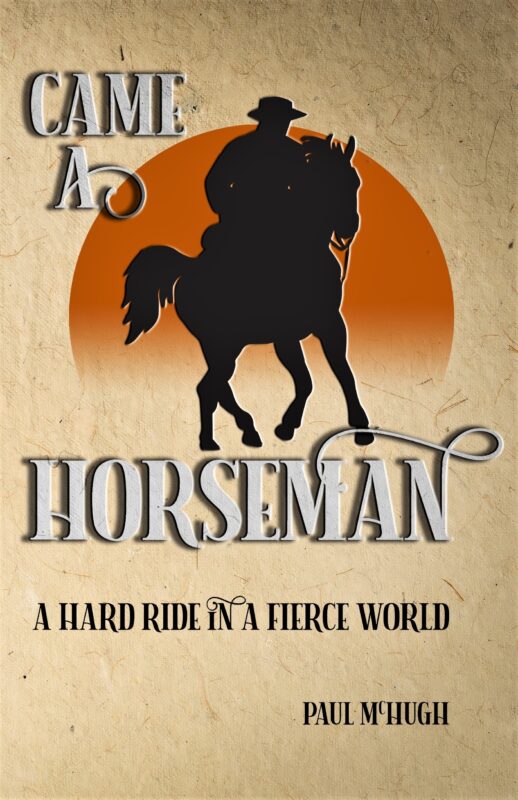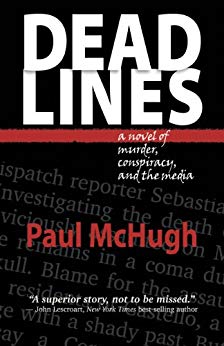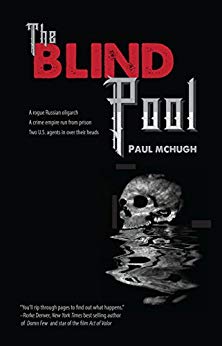 To summon a memory of the music of the wild that whirled from our woods each night of my childhood, is, for me, a way to recall all of Florida’s vast botanic and biologic grandeur. I don’t mean Florida as it is now. I mean the way it was back in the Fifties, when I was raised in a rural zone close to the Everglades that early settlers had dubbed the Redlands – due to wide stripes and patches of russet clay that streaked over the limestone bedrock.
To summon a memory of the music of the wild that whirled from our woods each night of my childhood, is, for me, a way to recall all of Florida’s vast botanic and biologic grandeur. I don’t mean Florida as it is now. I mean the way it was back in the Fifties, when I was raised in a rural zone close to the Everglades that early settlers had dubbed the Redlands – due to wide stripes and patches of russet clay that streaked over the limestone bedrock.
Roughly speaking, this region is south of Miami, west of the ‘Glades, and north of Key Largo.
On eves of full moons during summer, frogs would ratchet with abandon, insects whirr and click, night birds sing, breezes sigh. Our entire biome seethed with a mingled panoply of “critter” sounds that soared close to the symphonic in its delectable, sensual complexity.
At times, prompted by some secret conductor’s baton, a portion of that native orchestra fell silent. And thus signaled, all other segments soon quit as well, and a heavy stillness unfurled across the landscape like a vast and humid caul. That pregnant silence commonly lasted for a number of my pulsebeats. Then finally, faintly, way off in the distance, some big boss frog would emit a bass rurp! And the whirligig calliope of swamp noises erupted once more, flooding in through the glass slats of an open jalousie window. This revived river of sound flowed in with such vigor and vibrancy, it felt like it could float me right up off my bed…
My family dwelt in a live oak hammock, a sort of grove or islet of higher terrain mainly peopled by moss-draped hardwoods. It was surrounded by pine forests, themselves bracketed by a few long, marshy arms of swamp. To say that we were just three or four miles away from the town of Homestead might render the level of wildness I describe seem ludicrous now, perhaps utterly unbelievable.
But I’d point out to skeptics that back then Homestead was a pioneer village of just a few thousand souls. By far, dominant inhabitants of the region were creatures of air and grove, of slough and bay. An automobile drive up to Miami was its own adventure, a run on a narrow stretch of asphalt that wove its way through some thirty miles of forest and brush.
This fertile swampland generated an abundance of bird life, with its overall character tailored to each season. In autumn, I recall a chorus of whippoorwills echoing through our woods. And in winter, we enjoyed the coo of doves by day, and the sonorous hoots of great horned owls by night. In early spring, migratory northern songbirds awakened with the dawn, then serenaded us also into wakefulness. Summer brought dense clouds of dragonflies, whereupon nighthawks made their roaring dives down through the sky to grab ‘em with their beaks and gobble ‘em up.
A major boyhood goal for me was “conquering” all major oaks in our woods by seeking to scramble up to their highest branches – a pursuit to which I applied all the grit and drive of a climber intent on winning a rep in the Himalayas. That habit led to one of my most rewarding discoveries. If I made these ascents just after sunrise or just before sunset, I could perch on thin branches that jutted above the forest canopy and quietly observe the vast flocks of birds flying into and out of the Everglades. The most spectacular moments came when they flew straight toward me.
I could see them arriving as a dark feathered sheet, undulating just above the treetops. A seam ripped open in the flock’s fabric as the birds whizzed past my head, slightly altering flight paths by mere inches, no more than they would were I a rooted orchid. They didn’t expect to see a human being way up there, consequently did not treat me as though I might even be one. Exhilarating!
 More remarkable swamp denizens visited us on the forest floor; some of these visitors a bit more welcome than others. I recall my father shotgunning a rattlesnake out in the tall grass in front of the house when I was four, and when I was six, I went into the bathroom to find a water moccasin coiled around the base of our toilet. We dispatched that intruder with a fireplace poker. When I was ten, I and my brothers opened the front door, and a highly venomous coral snake dropped down from its top jamb. A swiftly delivered boot heel provided his exit visa. Those deaths weren’t casual or wanton, they were meant to ensure our family’s safety. Yet somehow I still regret them…
More remarkable swamp denizens visited us on the forest floor; some of these visitors a bit more welcome than others. I recall my father shotgunning a rattlesnake out in the tall grass in front of the house when I was four, and when I was six, I went into the bathroom to find a water moccasin coiled around the base of our toilet. We dispatched that intruder with a fireplace poker. When I was ten, I and my brothers opened the front door, and a highly venomous coral snake dropped down from its top jamb. A swiftly delivered boot heel provided his exit visa. Those deaths weren’t casual or wanton, they were meant to ensure our family’s safety. Yet somehow I still regret them…
Far more benign were our giant blacksnakes. These reptile gods seemed supremely regal, yet astoundingly gentle. They writhed through the woods with utter authority and grace. Whenever I spotted them, it always seemed they were journeying – intent on some far destination. We kids would caper around these immense serpents in a kind of dazed awe. They never truly bothered us, nor we them. Instead, they’d briefly halt in their travels to fix us with an obsidian eye.
For me, that glossy black bead staring back at me formed an aperture to an alien world, one through which I detected not only a presence but also an intellect, one that seemed spiced by a glint of amusement. Whenever I try to report to modern biologists how giant these blacksnakes actually were, they scoff. “Blacksnakes just don’t get that big!” they say. Vividly, though, I can recall one such snake who stretched all the way across a two-lane road, both ends of it disappearing into the scrub on each side. And that was before it was run over by a big truck, okay? Not after…
It was one more rude death that I’m now sad to have witnessed.
Any portrait of wildlife in Florida “back in the day” (as they say) could never be complete without a paean to our bugs. To reveal how persistently and avidly we were bugged by them for most months of any year, here’s my best image. If you saw a person strolling down a rural pathway in any season but mid-winter, he’d pretty much always resemble an exclamation point or question mark.
The little dot? That was the person. All the rest of the symbol would be the cloud of bugs swarming around and above him.
We were instantly and intimately joined on most of our outdoor forays by a horde of gnats, sandflies, ants, spiders, ticks, wasps, native bees, flies, chiggers, scorpions, a near-infinite supply of mosquitoes, and still more fellow-travelers equally eager to bite, yet far too numerous to cite. Back then, I tended to leak dribbles of blood and lymph as if my lumped hide was as holed as a fleshly colander, both from the original bug nips, as well as my fevered attempts to apply first aid with the sole medical tools I had readily available – my fingernails.
Now, perhaps, I should also try to extrude some gratitude to those countless crawly companions, about whom I so often complained. Throughout my youth, I was bitten, stung, scratched, soiled and muddied so extravagantly by my environment that today I seem to enjoy a rather robust immune system. (I hear kids today, interacting mainly with their smartphones while doing diddly-squat in the outdoors, fail to enjoy a similar advantage – hence their soaring rate of allergies.)
But, by far, the most potent legacy from my halcyon years in Florida’s then-lush biome was my lasting veneration of nature’s beauty and her potency. The sheer force of that reverence has inspired and guided me throughout my personal and professional lives.
And due to that durable reverence, I’ve long fought – in the mightiest yet most peaceful manner I could devise – those who poison, raze, exploit and pollute or otherwise proceed to heedlessly trash our precious natural home. A couple of times I did that in direct action campaigns. Mostly I did so by wielding a pen, reporting for decades on ecological and resource issues in both print and video media. (But so as to avoid becoming a total scold, I also sought to celebrate vigorous sport activity and adventuring in what’s left of our natural realm.)
Did my efforts make any difference? Hell, who knows! Perhaps a small, yet a measurable one. But no matter the results, I feel quite good about the decades I spent honoring those early and most profound sentiments – acquired at such an early age amongst our live oaks.
 And in the years that have passed, I’ve watched humanity race on madly to its rendezvous with an evolutionary bottleneck. And seen us drag countless other species along toward our approaching collision with consequences. It will be a time of inevitable accounting, of severe and bottomless calamity, and it’s now far too close for comfort. And all the changes that lead up to it have come so fast! The fabulous wildlife zone I felt privileged to live within? Youth of today cannot be coaxed or educated into even imagining it. Since they cannot bask in anything like the multi-level, biologic
And in the years that have passed, I’ve watched humanity race on madly to its rendezvous with an evolutionary bottleneck. And seen us drag countless other species along toward our approaching collision with consequences. It will be a time of inevitable accounting, of severe and bottomless calamity, and it’s now far too close for comfort. And all the changes that lead up to it have come so fast! The fabulous wildlife zone I felt privileged to live within? Youth of today cannot be coaxed or educated into even imagining it. Since they cannot bask in anything like the multi-level, biologic
richness itself, it’s simply beyond their ken.
I seldom return to our home hammock (my dad, in a rare fit of poetic grace, named it Acrux, after a star in the Southern Cross). When I do, each sojourn offers a sobering reminder of how many natural wonders have been subtracted from our world. But if a nostalgic visit gives me a slight hint of what once was, it also awards me a rich vision of what may come again.
Back at Acrux on an autumn night a decade ago, I stood outdoors at our rickety old house, and considered the fact that far too many years had passed since I’d heard a whippoorwill’s song. And as I pondered that, amazingly, one did call. (Most likely I’d heard and recognized it first subliminally, while indoors, which is why I’d gone outside to meditate upon that very topic.)
The night bird’s trill was like a cry of a ghost. It came from so far away, it sounded so isolated. No other whippoorwills answered, where dozens might have in the past. But I, I did not hesitate to respond. I set out upon the faint trace of a forest path that I remembered from my youth, swam out from the inky night shadows of our home hammock, walked past a delicate black lacework cast by scrub pines and palmettos, came out onto a roadway, crossed a canal bridge. I covered more than a mile in the dark as the repeated phrase that is a whippoorwill’s short aria grew steadily louder and more distinct.
Finally, I homed in on the bird herself. But as she sensed my nearness, she grew wary and she ceased her call. That was quite all right with me, though, because I had a plan, I’d done this sort of thing before. I wished for her to grow calm, to cease to see me as a threat.
I picked out a scrub pine, sat on its thick mat of fallen needles and leaned back against its rough and scaly bark. Minutes ticked past, can’t rightly guess how many. Yet I felt no worries. At that moment, like the poet William Blake, it seemed as though I could cradle infinity in the palm of my hand and glimpse eternity in an hour.
She began to sing – her pure desire to call had ultimately overwhelmed any concern about my presence. Her cry sounded so clear, so beautiful and so near that shivers rippled along my spine. I absorbed it with the avid thirst of a wanderer who arrives at an oasis on a sweltering day and rushes to gulp from a pond full of astonishingly cool water.
Truth be told, this last, lost solo did afflict me with some sadness, for I mourned the bird’s loneliness. Yet even so its solitary presence also bestowed an unusual sort of hope. For I perceived in that moment an insight which I continue to ponder nowadays – that the wild world is far more durable and resilient than any set of its living forms. Including us people. In other words, if all of humanity were to vanish into a jumbled heap of ash and mendacity and greed and radioactive bone fragments, our earth might brood for a bit. Then she will collect herself and begin again to emit many fresh living beings, all in lovely and new and amazing shapes.
So – no matter what happens to us – on some day in a far future, new tracks like unto those of a panther may be found in the rain-softened marl of a swampland path. Or of an evening, galaxies of something like fireflies may drift once more under dense beards of something like Spanish moss. And once more, nightbirds much like whippoorwills can call out to each other, over and over, across a darkened landscape. When that occurs, I hope some species which can do a far better job than we did of handling the miracle of consciousness shall also be present… to hear, and to see,
and to deeply value it all.








